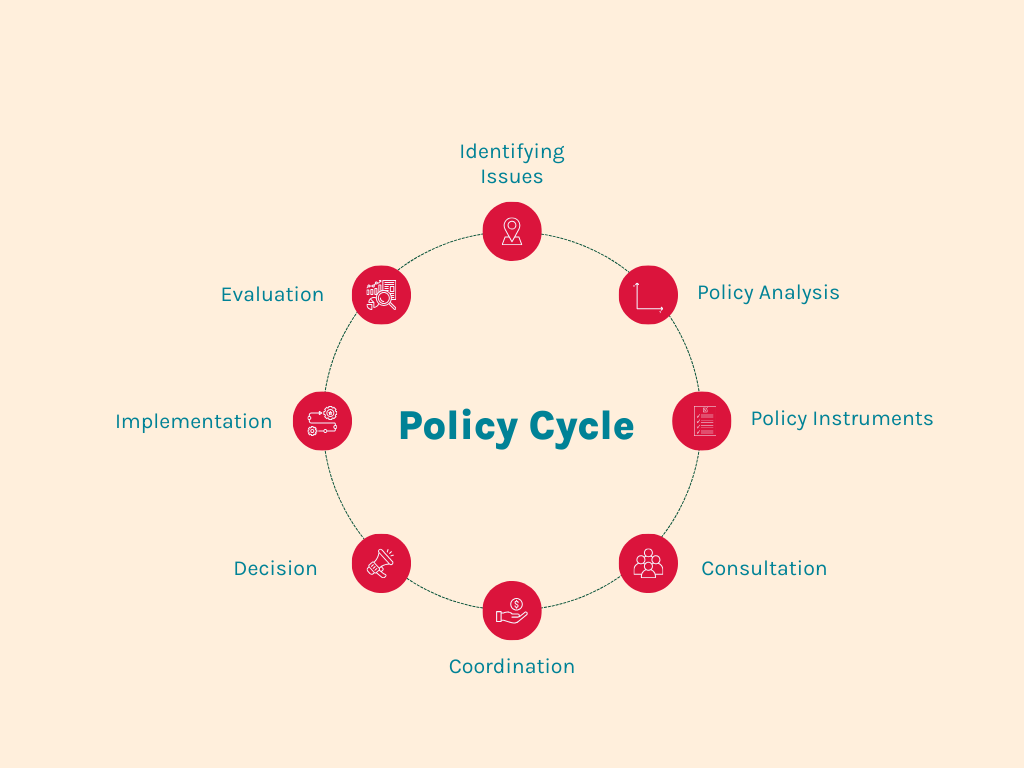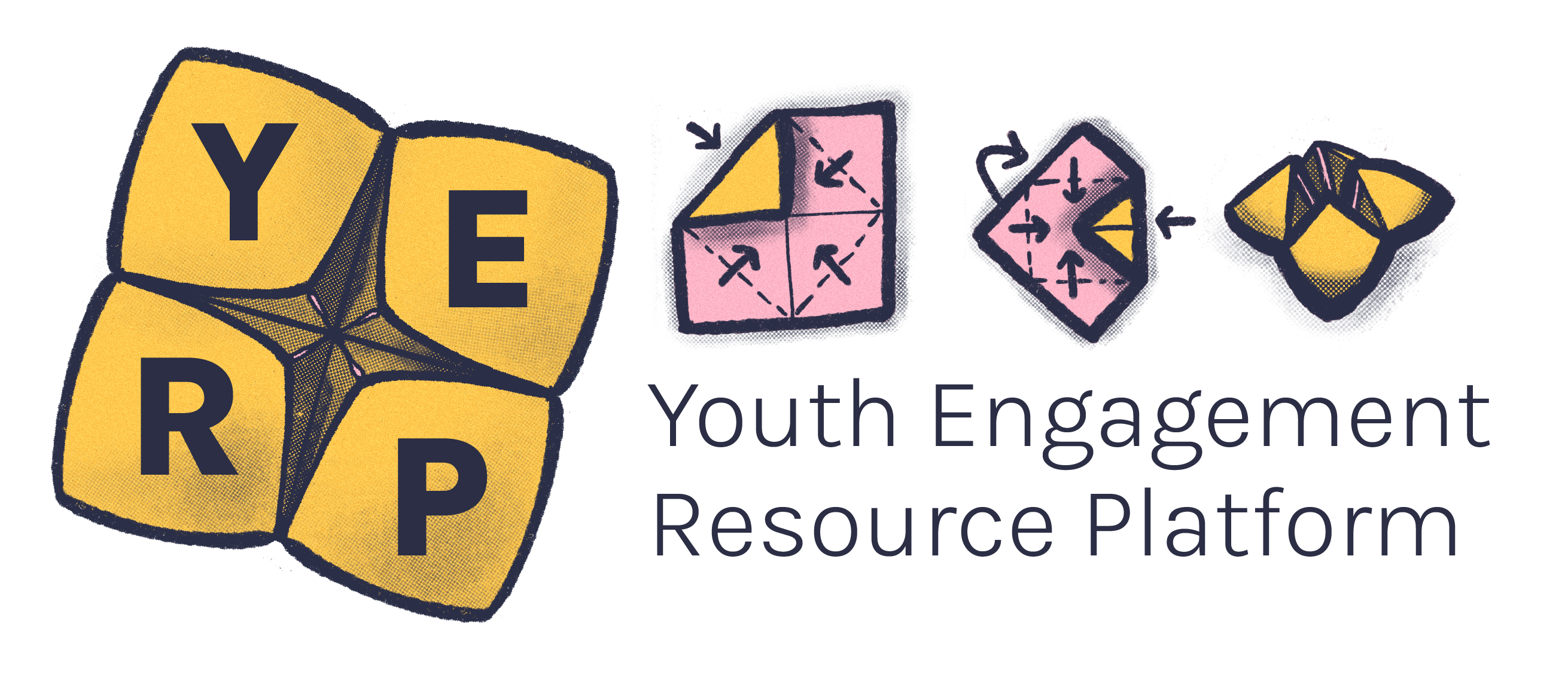Policy, specifically public policy, refers to agreed upon principles and directions taken by the government. Public policy impacts the way that Australian society is structured and influences people’s opportunities, quality of life, and rights4.
It can affect all aspects of our lives4 from what’s included in the The Australian National Curriculum provides schools, teachers, parents and students with a clear understanding of what students should learn.national curriculum, to how much support we receive from Centrelink to the way Australia responds to the climate crisis.
Accessible and transparent
-
Info should be easy to understand using plain language without
Special words or expressions used by a profession or group that are difficult for others to understand.jargon or complicated terms.
-
The intended outcomes should be explained to you.
-
Your Access needs are something a person needs to take part, communicate or learn in any given environment or situation.access needs should be met.
-
You should be involved in the earliest possible stage of policy creation.
-
You should feel safe, welcome, and respected.
-
You should be informed about what you’re contributing to and what’s expected of you.
Consent
-
The organisers should seek your consent before the consultation begins.
-
You’re allowed to leave or withdraw from the consultation at any time.
Availability
Those running the consultation should:
-
Be aware of things such as school holidays, university exams, and casual work demands.
-
Negotiate a time that works for everyone involved.
Ideally you should benefit in some way from being involved in the consultation process
-
Gain knowledge and firsthand experience of how policy creation works.
-
Be provided with Skills that you have developed while engaging in a program or project that you can add to your resume.skills cards
or experience that you can add to your resume.
-
Receiving Money paid for work or serviceremuneration where appropriate.
Feedback and follow-up
You should:
-
Be provided with an opportunity to give feedback about the process.
-
Expect a follow-up after the consultation.
The policy cycle refers to the system followed by governments to create policy. It’s generally made up of eight stages. Policy formulation can start at any stage of the cycle but in Australia most of the policies start from policy evaluation, issue identification or policy analysis1,2.
Stages of the policy cycle1
-
Identifying issues – which issues need to be addressed?
-
Policy analysis – gather information and evidence about the issue.
-
Policy instruments – think about how to respond to the problem and ways you can move forward. Instruments include advocacy, networking, money, government action and law.
-
Consultation – discuss and gather opinion from different actors and stakeholders.
-
Coordination – budget allocation and coordination among those involved in implementing the policy.
-
Decision – the cabinet will decide whether to implement the policy based on the advice from stakeholder consultation and evidence.
-
Implementation – the ideas are put into practice.
-
Evaluation – rethink on the policy design: Is the policy meeting its objectives? Are there any insights and recommendations that suggest the policy should be reviewed?
These stages are detailed in this diagram, adapted from the Australian Public Service Academy’s 2023 policy cycle diagram1.
Circle diagram of the policy cycle.

As a A person or government who has signed a contract resulting in a legal obligation to uphold it. signatory to the United Nations Convention on the Rights of the Child (UNCRC), Australia is therefore obligated to ensure that young people are given opportunities to have their voices heard and valued. Article 12 of the UNCRC calls for governments to listen to what young people have to say about issues that affect them, and to take their suggestions seriously3.
The Australian Federal Government’s Youth Policy Framework encourages the inclusion of young people’s voices in government service design.
At a state level, the Victorian Government recognises the value of including the lived experience of young people in shaping policy, and has demonstrated their commitment to the UNCRC by introducing the Victorian Youth Strategy.
Research suggests that policy outcomes are improved when lived experience is embedded throughout the policymaking process.
-
Identifying issues and policy analysis - young people can participate in public discussions, forums, and surveys to raise awareness of issues that affect them. This can help bring their concerns onto the policy agenda.
-
Consultation - young people can contribute to focus groups, surveys and public meetings. They can also be engaged in youth advocacy and the local community.
-
Policy formulation – giving young people the power to vote and co-design the policy ensures policymakers hear their voices.
-
Evaluation – young people can share their thoughts and ideas about how effectively current policies are working and where there is room for improvement.
Councils, local, state and federal governments often conduct consultations to support the development of new policy. YACVic also conducts consultations to feed into government policy to gain better insight into the challenges young people face and their potential solutions.
-
Your local council website’s community engagement platforms. You can also contact them about possible opportunities.
-
Contact local politicians in your area.
-
Keep an eye on notice boards at uni.
-
Become a YACVic member and receive a newsletter with opportunities for young people!
- Australian Public Service Academy. (5 October 2023). The Australian Policy Cycle. https://www.apsacademy.gov.au/sites/default/files/2023-10/Australian%20Policy%20Cycle.pdf
- Australian Public Service Academy. (1 April 2022). Policy Cycle. https://www.apsacademy.gov.au/sites/default/files/2022-04/22-016%20-%20Toolkit-TheoryBites-31Mar22_05_Policy%20cycle.pdf
- United Nations. (20 November 1989). Convention on the Rights of the Child. https://www.ohchr.org/en/instruments-mechanisms/instruments/convention-rights-child
- University of Canberra. (2023). What is good public policy? https://studyonline.canberra.edu.au/blog/what-good-public-policy





